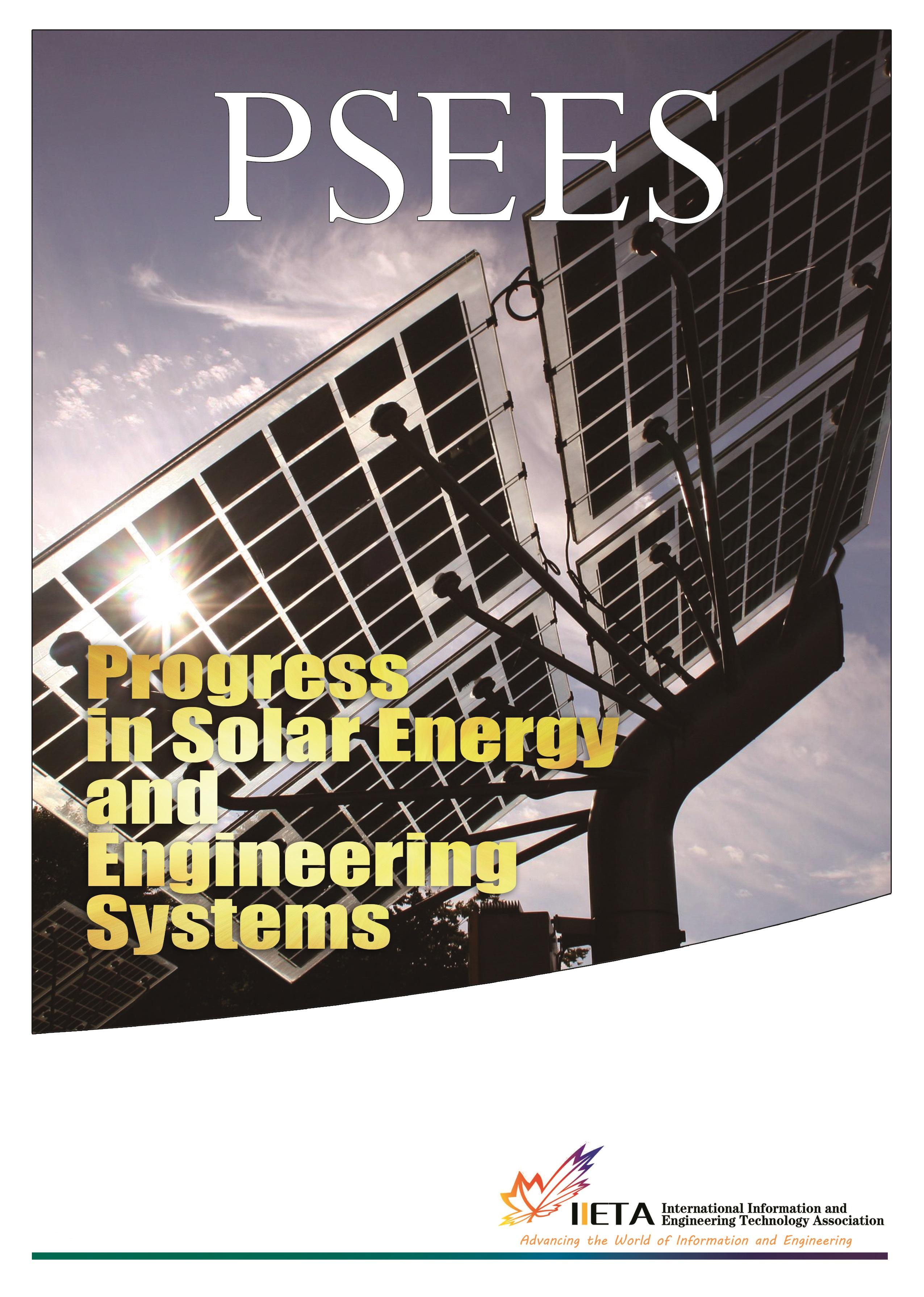Progress in Solar Energy and Engineering Systems
- ISSN:2562-7171 (print); 2562-718X (online)
- Indexing & Archiving:CrossRefGoogle Scholar
- Subject:EngineeringPhysical Sciences
Progress in Solar Energy and Engineering Systems (PSEES), an international journal run by International Information and Engineering Technology Association (IIETA), is devoted to advances in the science and technology of energies, especially solar energy. Various topics about energy engineering are covered by PSEES which gives priority to research results on solar energy related to photovoltaic, photothermal, photoelectrochemical, solar energy conversion and climate changes related to solar happenings.
Call for papers for PSEES
Progress in Solar Energy and Engineering Systems (PSEES) as the newest academic journal produced by IIETA welcomes all original, unpublished and high quality papers presenting information not previously published in journals on any aspect of energy engineering, especially solar and climate energy research, development, application, measurement or policy. The term "solar" in this context includes the indirect uses such as climate changes and technologies, wind and biomass in solar subject. Submitted papers may take the form of reports of original studies or reviews of significant prior works in given areas.
Focus and Scope
The journal covers (but is not limited to):
- Solar energy conversion and photovoltaics
- Solar cells
- Artificial photosynthesis
- Solar Physics
- Computational and experimental solar engineering
- Climate changes related to solar patterns
- Solar Collectors
- Solar power station
- Light physics
- Renewable energies related to solar engineering
- Solar energy materials
- Engineering systems of energies
- Application of solar managements, energy systems and analysis in civil engineering
Publication Frequency
PSEES is published quarterly in the last week of each March, June, September and December, with four regular issues (not including special issues) and one volume per year.
Section Policy
- Open Submission
- Indexed
- Peer Reviewed
Peer Review Process
A double blind reviewing procedure is adopted by PSEES. After submission, if the topic of the paper is appropriate for the journal, the paper is sent to editors and will reach a panel of experts as reviewers involved in the relevant research area, who can be either external or members of the editorial board. Each paper is reviewed by at least two reviewers. The final decision concerning the paper belongs to the editor-in-chief. The review comments will be returned to the author. There are four possible outcomes:
a) Accepted: the paper will be published without any revision.
b) Minor revision: the author will be required to revise the paper according to reviewers’ comments and then return the revised paper to the editor. The paper will be accepted at the editor’s discretion.
c) Major revision: the author will be required to significantly revise the paper according to reviewers’ comments and then return the revised paper to the editor. The paper will then undergo another round of peer review.
d) Rejected: the paper will not be published.
Upon acceptance, the corresponding author will receive an acceptance letter sent by an editor and be required to prepare the paper in MS Word using the template of PSEES.
Plagiarism Policy
We at International Journal of Heat and Technology adhere strongly to the highest ethical standards of academic integrity, and fully expect the same from all of our contributing authors. Any paper containing plagiarism seriously hinders us from our goal of maintaining high levels of quality, uniqueness, and innovation.
We will take serious actions against those papers determined to contain plagiarism including, but not limited to, removing those articles completely from our website as well as from the websites of the databases in which we are listed and indexed. Original authors can file a complaint against the paper which they think is their work and we will evaluate all such request in an impartial manner.
We are an active member of the plagiarism detection service CrossRef.
To learn about our ethics statement, see Policies and Standards.





